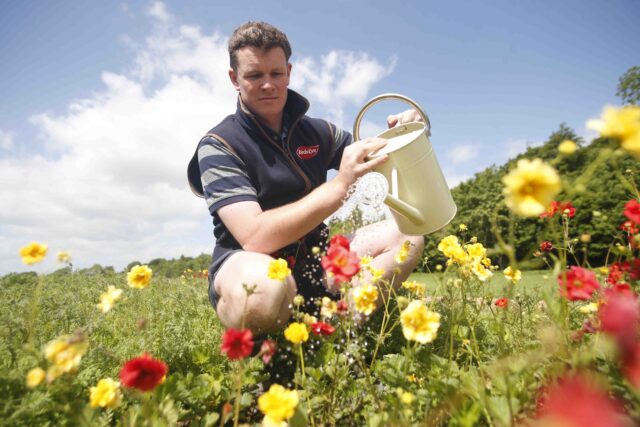It’s estimated that the global population will reach almost 10 billion by 2050[1]. In order for the planet to feed this many mouths, sourcing our food sustainably – in a way that doesn’t destroy biological diversity (biodiversity) and instead which actively replenishes it – is pivotal.
One of the main factors enabling us to source food sustainably and therefore eat ‘sustainably’ involves protecting the diversity of our flora, fauna and their ecosystems. Biodiversity is crucial to life on earth because it provides us with clean air, fresh water, good quality soil and crop pollination.
Significant damage to biodiversity would see the entire support system for food, collapse. What’s more, research suggests that agriculture is currently responsible for 60% of global biodiversity loss and 82% of the population believe companies have a moral obligation to protect it[2].
Birds Eye understands the need to act on these statistics and is committed to sustainable agricultural farming through targeting ‘regenerative agriculture’ initiatives, which aim to protect biodiversity and safeguard the planet to enable enough food for future generations. In 2020, the culmination of many years’ work led to Birds Eye’s pea farm management group becoming the first UK farm group, and the first globally in frozen food, to be awarded the highly coveted Sustainable Agriculture Initiative (SAI) Platform’s Farm Sustainability Assessment Gold level.
But the brand now feels it’s time to take their progressive sustainability work further than their fields and into the gardens and green spaces of the nation. This year, Birds Eye are campaigning to drive awareness of the importance of biodiversity by celebrating their peas and petits pois ranges. The campaign aims to encourage the nation to support biodiversity by growing wildflowers which in turn provide habitats for bees, butterflies and other pollinators.
The brand has donated a significant area at one of its pea farms in North Yorkshire in order to promote and support biodiversity. The vast sculpture has been carefully crafted from raked soil seeded with bright and beautiful British native wildflowers to provide a food source for bees and butterflies, symbolizing the beauty, power and importance of soil. The native wildflower species will encourage a wide range of pollinating insects and other wildlife to thrive in the area and the brand wants this to inspire the public to sow their own wildflower seeds.
Biodiversity loss currently stands at an estimated global level of 100 to 1000 times higher than the naturally occurring background extinction rate[3]. Acknowledging the enormity of the work to be done to tackle this issue, Birds Eye is gifting 5,000 seed boxes to schools near its pea fields in Hull, through the Rooted in Hull Charity. Started by two friends, Rooted in Hull is a community that aims to make the city more food savvy and resilient through the education of growing and eating healthy food. The seed boxes will act as a stepping stone for the local children to learn about basic gardening skills, while doing their bit to help biodiversity thrive.
Birds Eye’s bloomed butterfly structure and their donation of seed boxes also kicks off the brand’s pledge to plant 75 acres of wildflowers across the UK in the next three years, in celebration of the 75 years that Birds Eye has been growing peas in North Yorkshire.
Birds Eye’s ‘Peas For Bees’ campaign will run across TV, Digital, PR and in-store to educate the nation on the importance of biodiversity and the impact of its loss, as well as what we can all be doing to help protect it.
James Hopwood, Head of Agriculture Operations at Birds Eye, says: “We are committed to playing our part in helping solve the biodiversity crisis. In fact, it’s embedded in Birds Eye’s resolution to ‘serve the world with better food’: we are dedicated to providing quality food to our consumers and the impact of its production on the planet is part of this quality standard. 40% of raw materials used by Birds Eye, annually, are now vegetables and potatoes: by constantly creating and improving sustainable and resilient agricultural systems and by continuing to work alongside the farming community who we source these from, we can actually bring back diversity, replenish soil and landscapes and help recover biodiversity loss.”
We also want, and need, to highlight the importance of biodiversity to everyone at home as well. Through the ‘Peas For Bees’ campaign we aim to educate shoppers on the link between biodiversity and the food chain and hope our donation of seed boxes inspires others to help pollinators like bees and butterflies and help protect biodiversity”.




